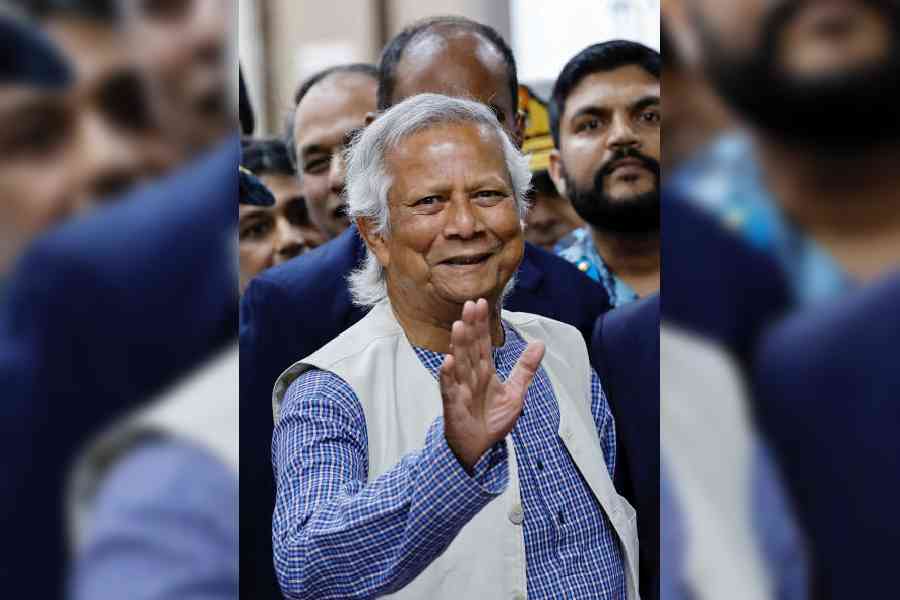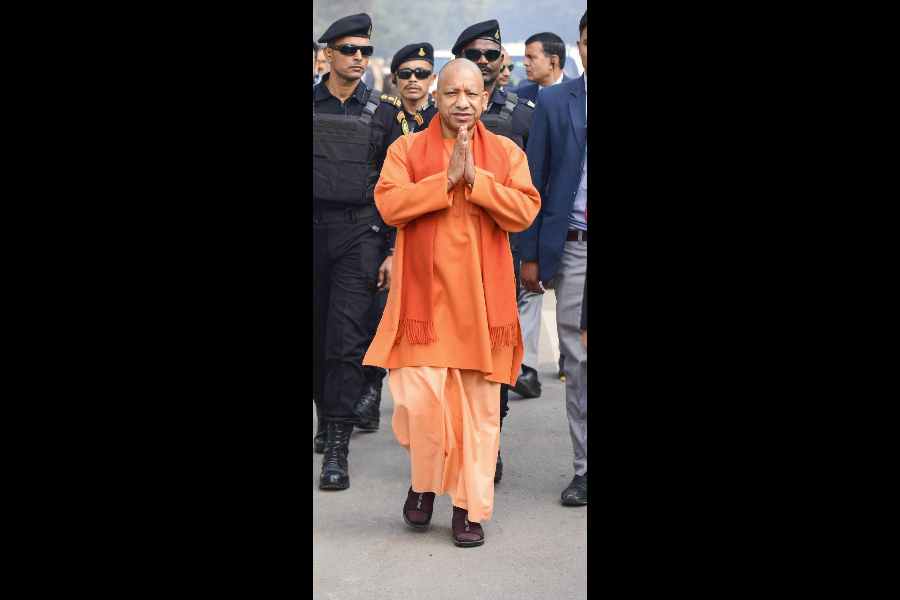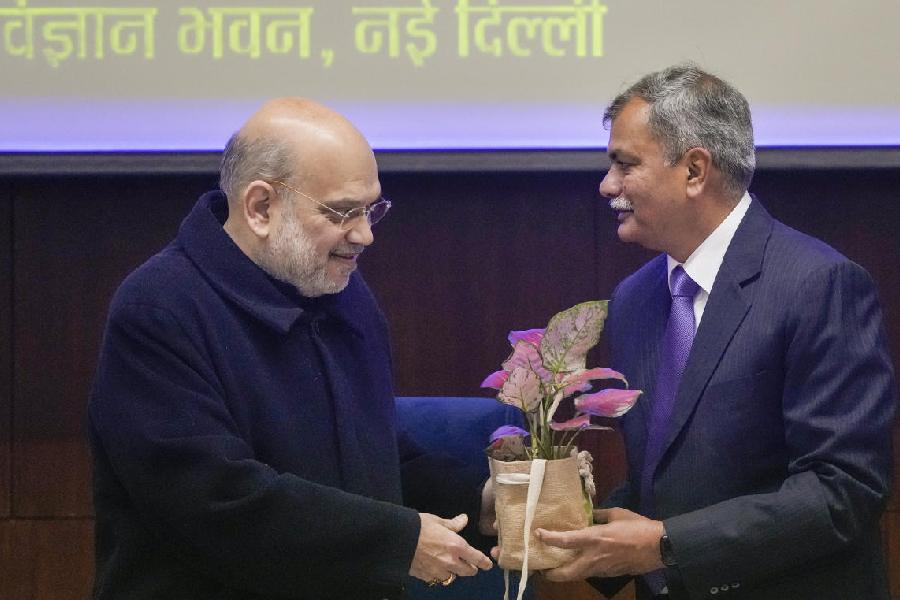A report released by the Bangladesh interim government chief Muhammad Yunus’s press wing on Saturday claimed that over 98 per cent of cases of attacks on minorities — carried out between August 4 and 20 last year — were politically motivated in nature and only 1.5 per cent of them were communal in nature.
The press wing report was based on findings of the police after investigations into complaints of communal attacks and acts of vandalism on minorities in the neighbouring country. Amid an uproar over the attacks on minorities after the fall of the Sheikh Hasina government, the Bangladesh Hindu Bouddha Christian Unity Council, an apex organisation of the minorities in the Muslim majority country, had come out with a list of 1,769 such incidents in the 17-day period after collating data from across the country.
According to Yunus’s press wing, investigations into 1,415 complaints — remaining 354 are still being investigated — revealed that 1,254 of them were genuine and 1,234 of them were political in nature. About 20 incidents took place due to communal reasons, the press wing claimed.
“In terms of percentage, 98.4 incidents of attacks were political while 1.59 per cent were communal,” the press wing said. It’s claim assumes significance in the backdrop of allegations of unprecedented attacks on minorities in Bangladesh after a wave of protests led to the fall of the Hasina government. In his congratulatory message to Yunus after he took charge on August 8, Prime Minister Narendra Modi underscored the need for “safety and protection of Hindus and all other minority communities”.
Amid reports that minority oppression continued unabated even after Yunus’s pledge to create an inclusive Bangladesh, US President-elect Donald Trump decried the situation of Bangladesh on social media platform X just two days before the US polls.
“I strongly condemn the barbaric violence against Hindus, Christians, and other minorities who are getting attacked and looted by mobs in Bangladesh, which remains in a total state of chaos,” he wrote in a post, embarrassing the Yunus regime.
In the face of these criticisms, the Yunus regime had claimed that the alleged incidents on attacks on minorities were political in nature, implying that some minorities, due to their allegiance to the Awami League, became victims as there was a backlash on Hasina’s party and its activists after a popular uprising brought an end to her regime.
The report released by Yunus’s press wing willy-nilly endorsed that view.
“This report is a pack of lies... Everybody knows that Awami League leaders and supporters were at the helm of bodies running religious shrines like temples, mosques and churches in Bangladesh. Will the Yunus government clarify why only the temples bore the brunt of a backlash against the Awami League regime?” asked Suvendu Adhikari, BJP MLA and the leader of the Opposition in the Bengal Assembly.
“The fact is, there is an intolerant regime at the helm in Bangladesh... And this regime is getting increasingly insecure about its continuation as the swearing-in of President-elect Trump is nearing. That’s why they came up with a fictitious report like this,” he told this newspaper.
In recent months, Adhikari, several others in the saffron ecosystem and politicians from the Congress and the Trinamool Congress have attacked the Yunus government over the treatment of minorities in Bangladesh.
The criticism of the interim regime peaked after the arrest of Hindu monk Chinmoy Krishna Das on sedition charges on November 25 and the developments thereafter, including a Chittagong court’s decision to deny him bail and attacks on lawyers, who tried to move his bail plea.
Though the report was silent on Das’s arrest, it made some tall claims like zero tolerance towards communal attacks.
“The Interim Government has a zero-tolerance policy towards any communal attacks in the country. Police have been ordered to arrest the culprits,” said the report, besides announcing the government’s decision to compensate the victims.
“Police responded to all those complaints with utmost importance. At least 53 cases have been filed... A total of 65 offenders have been arrested in these cases,” said the press wing report.
A prominent minority leader of Bangladesh and a former editor of a news channel told this newspaper that the press wing report was an attempt to redeem the image of the Yunus government, which has “miserably failed” to give a sense of security
to over 2 crore Hindu, Christian and Buddhists in Bangladesh.
Farhad Mazhar, a Bangladeshi poet, social and human rights activist, however, chose to take a balanced view of the press wing report.
“If this report has come from the government, I will definitely stand by it as the organisation (the Bangladesh Hindu Bouddha Christian Unity Council) has a history of producing exaggerated claims,” he said, before stressing that the tendency among the minorities to support the Awami League may have been the main reason behind attacks on them after the anti-League uprising.
“But it is also true that the attacks on minorities were not properly covered or reported... So, it is difficult to ascertain the extent of minority oppression. But that’s the problem in the entire subcontinent, including in India, where minorities are coming under attack and that is one of the major reasons behind the deterioration in India-Bangladesh ties,” he said.
For a fair assessment of what happened after the fall of the Hasina government, he felt that “an objective and international human rights organisation” should carry out a proper assessment.
“There is a tendency in some quarters (in Bangladesh) to deny oppression of minorities,” he added.











